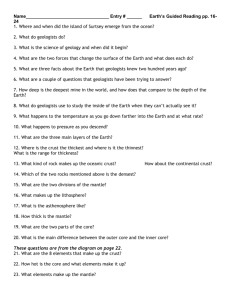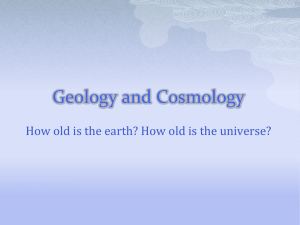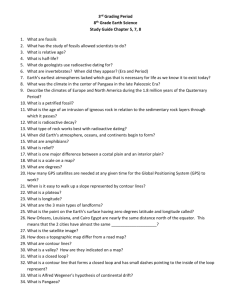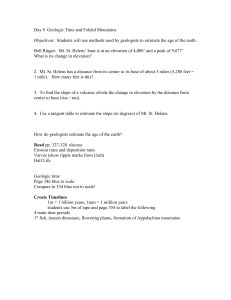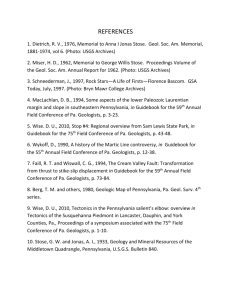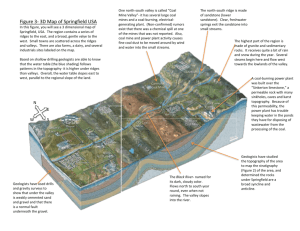And now in lighter vein an essay on: GROUTING – WHO DOES IT
advertisement
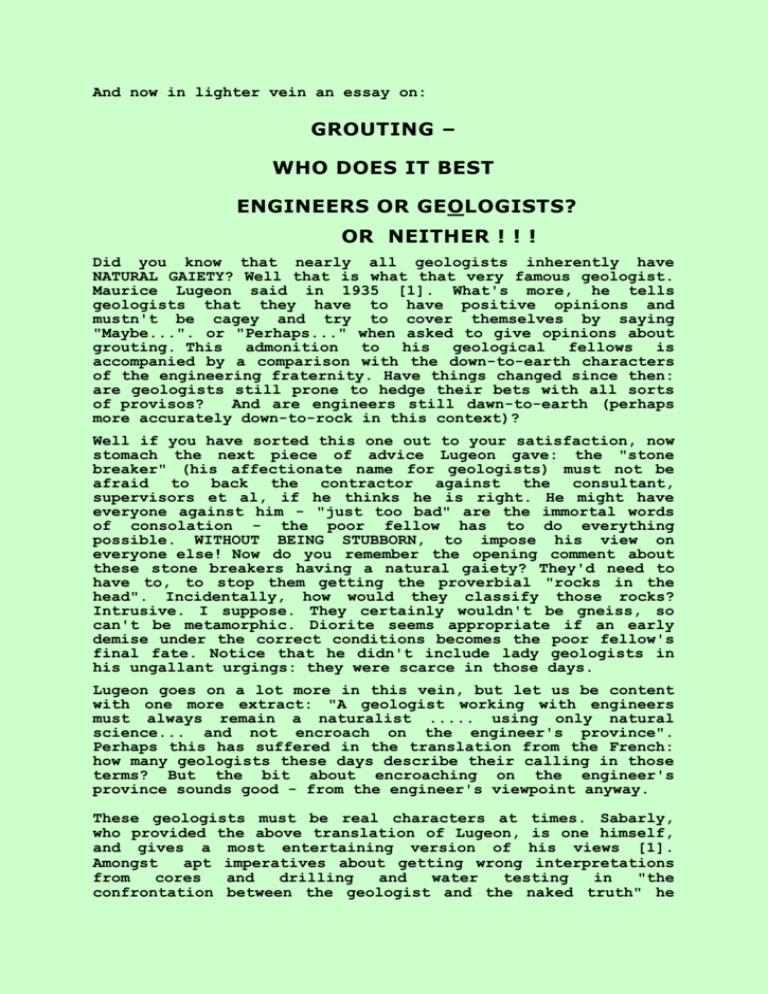
And now in lighter vein an essay on: GROUTING – WHO DOES IT BEST ENGINEERS OR GEOLOGISTS? OR NEITHER ! ! ! Did you know that nearly all geologists inherently have NATURAL GAIETY? Well that is what that very famous geologist. Maurice Lugeon said in 1935 [1]. What's more, he tells geologists that they have to have positive opinions and mustn't be cagey and try to cover themselves by saying "Maybe...". or "Perhaps..." when asked to give opinions about grouting. This admonition to his geological fellows is accompanied by a comparison with the down-to-earth characters of the engineering fraternity. Have things changed since then: are geologists still prone to hedge their bets with all sorts of provisos? And are engineers still dawn-to-earth (perhaps more accurately down-to-rock in this context)? Well if you have sorted this one out to your satisfaction, now stomach the next piece of advice Lugeon gave: the "stone breaker" (his affectionate name for geologists) must not be afraid to back the contractor against the consultant, supervisors et al, if he thinks he is right. He might have everyone against him - "just too bad" are the immortal words of consolation - the poor fellow has to do everything possible. WITHOUT BEING STUBBORN, to impose his view on everyone else! Now do you remember the opening comment about these stone breakers having a natural gaiety? They'd need to have to, to stop them getting the proverbial "rocks in the head". Incidentally, how would they classify those rocks? Intrusive. I suppose. They certainly wouldn't be gneiss, so can't be metamorphic. Diorite seems appropriate if an early demise under the correct conditions becomes the poor fellow's final fate. Notice that he didn't include lady geologists in his ungallant urgings: they were scarce in those days. Lugeon goes on a lot more in this vein, but let us be content with one more extract: "A geologist working with engineers must always remain a naturalist ..... using only natural science... and not encroach on the engineer's province". Perhaps this has suffered in the translation from the French: how many geologists these days describe their calling in those terms? But the bit about encroaching on the engineer's province sounds good - from the engineer's viewpoint anyway. These geologists must be real characters at times. Sabarly, who provided the above translation of Lugeon, is one himself, and gives a most entertaining version of his views [1]. Amongst apt imperatives about getting wrong interpretations from cores and drilling and water testing in "the confrontation between the geologist and the naked truth" he blithely mentions how exploratory bores hate to intercept karst. A lot of holes drilled in an area showed no karst, but when excavated it was found that "the karst system found its way cheerfully between them. One of the holes, which had gone through a large cave, was perverse enough to follow dawn inside a large stalactite, which met up with a stalagmite". How's that for getting sound geological advice! Of course. if you have been following me this far you have probably said to yourself: what about people who combine both the geology and the engineering - the engineering geologist? I have noticed that these people mostly tend to be in the same camp as their initial training: if they started as geologists and later picked up the engineering side, they think like geologists, and vice versa. There are exceptions to every rule, and some notable exceptions to this one. So be it. But why the distinction anyway? Well..... Can it be said that geological training gives a good grounding (or is it rocking - not the sort that puts the baby to sleep though) in understanding jointing and cracking and all the other things to be filled with the grout, whereas engineering training in fluid mechanics and machinery gives the enlightened engineer all the clues on the grout itself, how it flows in the cracks, how to make it and deliver it? Some broad generalisations there? But some basis of truth, in many cases. The two disciplines obviously complement each other. and like love and marriage. "You can't have one without the other"... or at least ..You shouldn't. Looking back over quite a number of years, and comparing those grouting jobs run by geologists with those run by engineers and those run by neither, in a patriachal pose I offer some thoughts: a)Geologists tend towards thicker grouts; perhaps there is a mental analogy with that red-hot molten magma flowing dawn from some volcanic vent or with the sub-surface flows that they know so much about. b)Engineers tend towards thinner grouts (with some exceptions though, including myself), perhaps echoing their basic fluid mechanics training which is almost entirely in terms of water. Rheology, the study of viscous flow is rarely encountered in basic training: once it is mastered, though, it opens up a whole new field of understanding. c) Jobs run by neither have often tended to just follow some previous job without real adaption to site conditions. The sort of character who runs such jobs often has many years of experience, but tends to keep it a secret from anyone else. Cynics have suggested the secrecy is to cover limited knowledge and understanding of the subject, and have bestowed the nickname: "Grand-daddy grouters". d)When it comes to the machinery side of the subject, geological training isn't much help: engineers are in their element., And who will be the Solomon who sums this up? Not I. A.C.Houlsby. [1] Quoted in “Engineering Geology and Dam Foundations”. F.Sabarly. Second International Congress of the International Association of Engineering Geology. Brazil, 1974 Vol 2 paper VI-GR 1.
